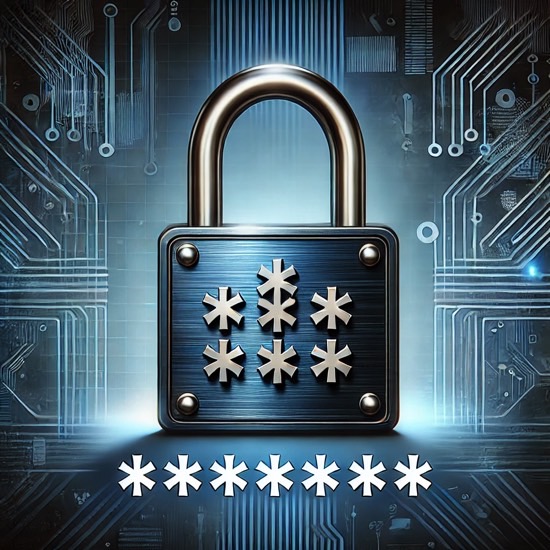Ultimate Password Security for Musicians, Coders & You

TL;DR:
Strong, creative passwords are your first line of defense. Use long, unique phrases, password managers, 2FA, or the first-letter method to secure your digital assets.
Introduction
Hey there, fellow melody makers and code crafters! Uncle Drei here, ready to drop some knowledge to help you secure your digital studio and dev environment. Whether you’re laying down tracks or writing code, keeping your creations safe is as important as hitting the right note. Let's mix up some security best practices with a dash of creativity and humor.
Why Should Musicians and Coders Care About Password Security?
Your digital creations—whether an epic track or a neat block of code—are your livelihood. Here’s why you should protect them:
- Your creations are your livelihood: Your art fuels your passion and your bank account.
- Stolen tracks or code can hit your royalties: A breach can cost you more than just creative time.
- Hacked accounts cause embarrassing posts: Imagine your EDM account suddenly blasting polka hits!
- Weak passwords leave you vulnerable: They’re like leaving your studio or GitHub repo wide open for unwanted guests [1].
Composing the Perfect Password
Creating a strong password is like writing a hit song or clean code. It needs to be memorable, unique, and layered with complexity:
- Length is key: Aim for at least 16–20 characters. Think of it as an extended remix of your typical password [12].
- Mix it up: Use uppercase, lowercase, numbers, and symbols. It’s like layering different instruments in your track or mixing various data types in your code [12].
- Avoid the obvious: Don’t use “password,” your birthday, or “123456.” That’s like repeating the same four chords in every song or copy-pasting a generic function [1].
The Chord Progression Method
For my music nerds, here’s a creative trick: use chord progressions to inspire your passwords. For example:
- Password Example:
Gm7(9)Am7(b139)DmMaj7B7#5Csus2/G
This password is as intricate as a jazz fusion masterpiece—complex, unique, and nearly impossible to guess. Just remember, while creative, it might not be as secure as a truly random password [15].
The Code Snippet Method
Coders, you’re not left out! Why not use a snippet from your favorite code? For instance:
- Password Example:
for(i=0;i<arr.length;i++){sum+=arr[i];}
Spice it up with some special characters and numbers to ensure your password isn’t just a piece of your code [15].
The First-Letter Phrase Method
Here's a quick and clever way to create a unique password for each website—by using the first letters of a favorite phrase or quote that means something to you. This method is personal, memorable, and can be tweaked to fit each login:
- How it works:
Choose a phrase you love, like a memorable quote or a saying you never forget. Write down the phrase and take the first letter of each word. Then, add the first letter of the website for which you're creating the password. - Example:
Phrase: "My first car Was a 90 Blue Ford escort Google!"
Password:MfcWa90BFeG!
This 12-character password represents your unique phrase, ending with the first letter of the website. It's a quick and dirty way to ensure you have a unique password for every login.
This method is great for those who want a shortcut to creating a personal, site-specific password without relying entirely on random generators.
Password Managers: Your Digital Roadie/IDE
Think of a password manager as your personal digital roadie or an IDE for your passwords. Here’s why it’s a must-have:
- Generates strong, unique passwords: No more reusing the same “ILoveSynths4Ever.”
- Secure storage: It safely holds all your passwords so you don’t have to remember them all.
- Cross-device syncing: Whether you’re in the studio, on tour, or coding in a café, you’re always covered [6].
Just be sure to create a strong master password—consider it the main riff of your security symphony [11].
Two-Factor Authentication: The Backup Vocalist/Error Handling
Enable two-factor authentication (2FA) wherever possible. It’s like adding a backup vocalist to your security performance or implementing error handling in your code. Even if someone cracks your password, they still need that second layer to get in [8].
Keeping Your Digital Studio/Dev Environment Secure
Your music production software and development environment are the heart of your creative process. Here’s how to keep them safe:
- Regular updates: Keep your DAW, IDE, and plugins up to date—like tuning your instruments before a gig.
- Separate accounts: Use different passwords for your DAW, cloud storage, social media, and code repositories. Don’t let one weak link compromise the whole chain [9].
- Cautious downloads: Only install plugins, samples, or libraries from trusted sources. It’s like checking a band’s reputation before booking them [9].
FAQ
Q: How often should I change my password?
A: Regular updates are smart practice—think of it as practicing your scales or refactoring your code to keep your skills sharp.
Q: What makes a password strong?
A: A strong password is long, uses a mix of characters, avoids common phrases, and ideally is unique for each account [12].
Q: Do I really need 2FA?
A: Absolutely. 2FA adds an essential layer of security, like a backup vocalist ensuring your performance doesn’t fall flat [8].
Conclusion
Strong passwords are your first line of defense in the digital world. By using long, unique passwords, employing password managers, enabling two-factor authentication, or even trying out creative methods like the first-letter phrase trick, you’re setting the stage for a secure creative journey. Treat your digital security with the same passion and precision as your music or code—your future self (and your fans) will thank you!
Call to Action
What’s your go-to method for creating secure passwords? Let’s geek out about cybersecurity in music and code.
References:
[1] Reddit Lifehacks
[6] Reddit Sysadmin
[8] Reddit Privacy Guides
[9] Soundgrail Blog
[11] Commercial Integrator
[12] CISA - Use Strong Passwords
[15] Reddit Cybersecurity